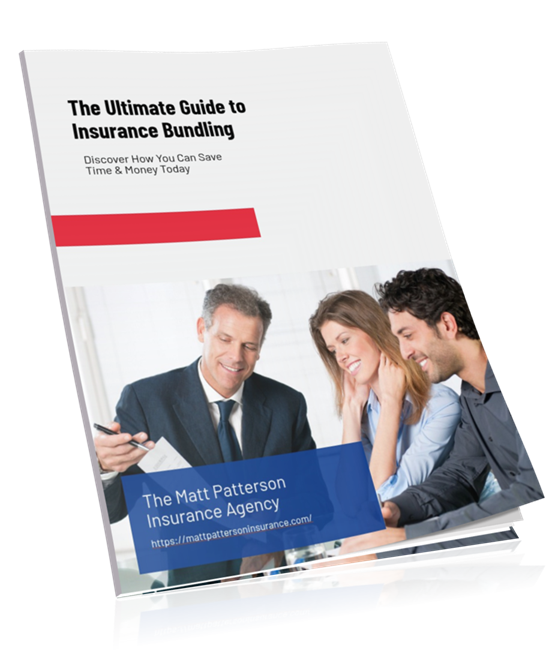When it comes to San Marcos business insurance, it’s key to understand the role this insurance plays in protecting your company from unforeseen obstacles like theft, lawsuits, and property damage. Proper insurance for businesses in San Marcos TX provides a safety net that can shield businesses devastating financial repercussions during unexpected events.
Many local business owners underestimate the importance of a robust business insurance policy, often dismissing it as an unnecessary overhead. However, this misconception can lead to serious consequences when calamity strikes. Relying on a reputable local realtor can mitigate such potential risks.
Common myths include the idea that small businesses don’t need insurance or that personal insurance policies cover business-related incidents. These beliefs can leave you vulnerable to significant liabilities.
Choosing the right business insurance doesn’t have to be complicated. In just five easy steps, you can ensure your business is well-protected. For personalized guidance tailored to your unique needs, consider consulting with experts.
Step 1: Assess Your Business Risks
Identifying potential risks specific to your industry is the first step in securing the right business insurance. Each industry has unique threats that can significantly impact operations if not managed properly. For instance:
Retail Businesses: face theft, shoplifting, and property damage.
Agriculture: often deals with weather-related issues and equipment failures.
Tech Companies: are vulnerable to cyber-attacks and data breaches.
Understanding these industry-specific risks helps you determine the type of insurance coverage needed to protect your business comprehensively.
Businesses also face various liabilities that are crucial to consider. These include:
- General Liability: covers common risks like third-party injuries and property damage.
- Professional Liability: also known as Errors and Omissions (E&O) insurance, protects against claims of negligence or mistakes in professional services.
- Workers’ Compensation: necessary for covering employee injuries on the job.
Conducting a thorough risk assessment for business insurance, you can identify which liabilities are most relevant to your sector. This analysis ensures that you select the appropriate coverages, providing peace of mind and financial security.
Step 2: Understand Different Types of Business Insurance
Different businesses face varying risks, making it essential to understand the types of business insurance available. Here are some key coverage options:
Key Coverage Options
- General Liability Insurance: Protects against third-party claims for bodily injury, property damage, and advertising injury. Essential for almost all businesses.
- Professional Liability Insurance: Also known as Errors and Omissions (E&O) insurance. Covers legal costs arising from mistakes or negligence in professional services. Crucial for service-based businesses like consulting or legal firms.
- Workers’ Compensation Insurance: Provides coverage for medical expenses and lost wages if employees are injured on the job. Often mandatory for businesses with employees.
Specialized coverage options add another layer of protection:
Specialized Coverage Options
- Cyber Security Insurance: Shields against losses from data breaches, cyber-attacks, and other technology-related risks. Increasingly important with the rise in cybercrime.
- Product Liability Insurance: Offers protection if a product you manufacture or sell causes injury or damage. Vital for businesses involved in production or retail.
Understanding these insurance types helps tailor your policy to cover specific risks, ensuring comprehensive protection for your operations.
Step 3: Evaluate Your Coverage Needs
Evaluating the need for business insurance starts with identifying which coverages are essential based on your specific operations and size. Different businesses have varying requirements depending on factors like industry type, number of employees, and operational risks.
Understanding Basic vs. Comprehensive Plans:
- Basic Plans: These typically provide fundamental coverage at a lower cost. For example, a general liability policy might cover common risks but exclude specialized incidents like cyber-attacks.
- Comprehensive Plans: Offer more extensive protection by bundling multiple coverages into one policy. An example is a Business Owner’s Policy (BOP) that combines general liability, property insurance, and business interruption insurance.
Choosing between basic and comprehensive plans depends on your risk tolerance and financial capacity. While basic plans are budget-friendly, comprehensive plans provide broader security against potential threats. Assessing these needs methodically ensures you invest in the right level of protection tailored to your business’s unique circumstances.
Step 4: Compare Insurance Providers and Policies
When comparing business insurance options, it’s crucial to shop around for competitive rates and coverage from different insurers. This ensures you get the best value for your money while securing the protection your business needs.
Here are some tips for effectively comparing policies:
- Coverage Limits vs. Premiums: Examine the coverage limits of each policy and weigh them against the premiums. A lower premium might seem attractive, but if it comes with limited coverage, it could leave your business exposed to significant risks.
- Policy Exclusions: Pay close attention to what is not covered under each policy. Exclusions can vary significantly between insurers and could impact your overall protection.
- Customer Reviews and Ratings: Research customer feedback on various insurance providers. Look for reviews that discuss claims processing, customer service, and overall satisfaction.
- Additional Benefits: Some insurers offer added perks such as risk management resources or discounts on other types of insurance when bundled together.
- Flexibility in Coverage Options: Evaluate how flexible each provider is in customizing policies to fit your specific business needs. A one-size-fits-all approach might not be suitable for every business.
Comparing business insurance options can be time-consuming but doing so helps ensure you find a policy that offers comprehensive coverage at a reasonable price. Always consult with experts to provide personalized guidance tailored to your unique requirements.
Step 5: Calculate Costs and Decide
Understanding the cost of business insurance is crucial for making an informed decision. Several factors influence the overall cost:
- Location: Insurance premiums can vary significantly based on your geographic location. For instance, businesses in areas prone to natural disasters may face higher premiums.
- Size and Revenue: Larger businesses with more employees and higher revenues typically pay more for insurance due to increased risks.
- Industry Type: High-risk industries, such as construction or manufacturing, often incur higher costs compared to low-risk industries like consulting.
Cost Examples
To illustrate how costs can vary:
A consultant in Texas with an annual payroll of $200,000 might pay around $350 per year for a policy covering $1 million per incident and $2 million total.
An IT consultant in California with $150,000 in revenue could pay approximately $441 annually for a policy with a $500,000 limit and a $5,000 deductible.
These examples underscore the importance of tailoring your insurance coverage to fit your specific business needs. Calculating these costs carefully will help you make a well-informed decision that balances coverage with affordability.
Working With Us To Insure Your Business
Choosing the right business insurance is not just a regulatory requirement but a critical step in protecting your financial security and peace of mind. The benefits of business insurance extend beyond mere compliance; they safeguard against unforeseen incidents like theft, lawsuits, and accidents that could otherwise cripple your operations.
To navigate these issues, consulting with experts who specialize in tailored insurance solutions can make all the difference. We offer personalized guidance to ensure you find the most suitable coverage for your unique needs.
Why businesses need protection:
- Financial Security: Shield against costly legal battles and compensations.
- Peace of Mind: Focus on your core operations without worrying about potential risks.
- Credibility: Enhance your business reputation with robust insurance backing.
Consult with us today to explore comprehensive options designed specifically for your industry.
Frequently Asked Questions About Business Insurance
What is business insurance and why is it important?
Business insurance is a type of coverage that protects businesses from financial losses due to various risks, such as property damage, liability claims, and employee-related issues. It’s crucial for businesses as it provides financial security and peace of mind, allowing them to operate without the constant worry of potential risks impacting their operations.
What are some common misconceptions about business insurance?
Many people believe that business insurance is only necessary for large companies or that it covers all types of risks. However, every business, regardless of size, faces unique risks that can lead to significant financial loss. Not all policies cover every risk, so it’s essential to understand specific coverage options tailored to your industry.
How do I assess my business risks for insurance purposes?
Assessing your business risks involves identifying potential threats specific to your industry and understanding how they could affect your operations. This includes evaluating various types of liabilities you may face, and their relevance based on your sector. A thorough risk assessment will help you determine the right coverage needed.
What types of business insurance should I consider?
There are several types of business insurance available, including general liability, professional liability, and workers’ compensation. Specialized coverage options such as cyber security insurance and product liability insurance are increasingly important in today’s market. Understanding these options will help you choose the best fit for your needs.
How can I compare different insurance providers and policies effectively?
To navigate the different providers and policies effectively, it’s important to compare options, factoring in aspects such as coverage limits and premiums. An accurate comparison requires thorough reading and understanding of policy details, helping make an informed decision about which provider offers the best value suited to your specific requirements.
What factors influence the cost of business insurance?
The cost of business insurance varies based on a variety of factors, including the business insurance agency in San Marcos you choose, the location and size of your business, your industry, and specific coverage needs. For instance, consultants operating in different states might encounter varying costs due to unique state regulations or market conditions. Calculating these costs based on your unique situation is essential before making your decision.






